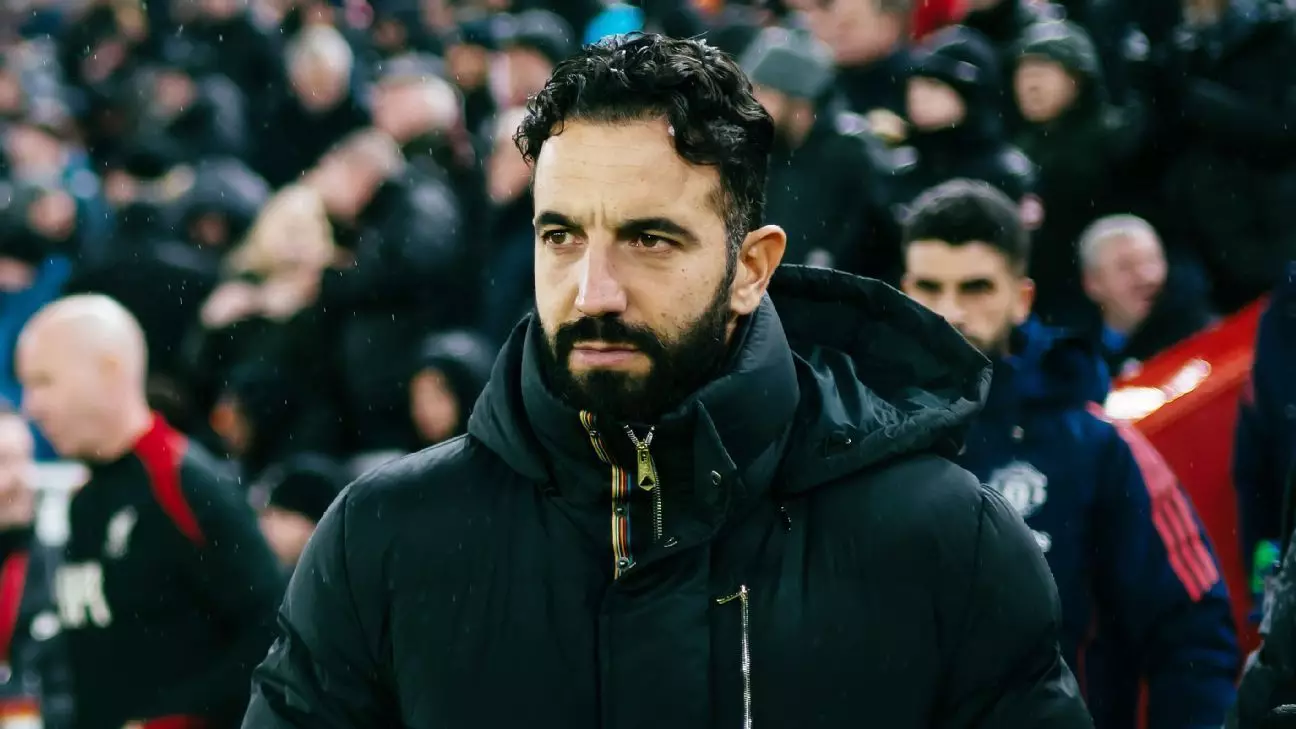In the high-octane world of Premier League football, complacency can be a team’s greatest enemy. After Manchester United’s invigorating 2-2 draw against Liverpool, coach Ruben Amorim highlighted the necessity of shaking the players out of their comfort zones. The match at Anfield, which revived United’s spirits and ended a disheartening three-game losing streak, was not merely a battle for points; it was a psychological turning point intended to challenge the status quo within the club. Amorim, who has not shied away from calling his players “afraid” to possess the ball, articulated a vision for a more aggressive, self-assured United team.
Amorim’s strategy for motivating the players reveals a candid understanding of the internal challenges the club faces. He boldly stated, “I feel we are… too comfortable.” This admission serves as a critique of the broader culture that can develop in teams, particularly in clubs with a rich history like Manchester United. In his efforts to instigate change, Amorim seems determined to instill a sense of urgency and accountability among his players, recognizing that success is not merely about talent, but also about mindset.
The match saw Amad Diallo scoring a critical equalizer in the 80th minute, a feat that fortified United’s resolve against a team that has dominated in recent seasons. With Lisandro Martínez contributing a thrilling opener and the team’s overall performance showing a glimmer of their old tenacity, the draw was a clear indication that a shift was possible. Yet, Amorim’s post-match reflections were strikingly honest and introspective. He expressed disappointment despite acknowledging the team’s effort, signaling that the bar for performance has been set higher: “I am upset today, really upset.” This duality is essential for any leader aiming to foster growth—acknowledging the positives while entrusting the players to raise their game continually.
United’s track record leading into this encounter had been dismal, losing five of their last six league matches. It served as a stark reminder of their fragile state, compelled Amorim to emphasize the need for consistency. Echoing sentiments of accountability, he noted, “…we need to show and do it.” The underlying message here is crucial; mere words will not suffice. Action, consistency, and hard work in training are vital components of Amorim’s philosophy and vital for the club’s resurgence.
As the dust settles from the Liverpool encounter, the pressure mounts. While Amorim’s tactical approach addresses past performances, there remain significant challenges ahead. In the coming weeks, United has tough fixtures lined up, including an FA Cup clash against Arsenal, followed by a crucial game against Southampton. These matches will serve as tests not only of unity and morale but also of Amorim’s strategies.
Amorim’s defense of Joshua Zirkzee’s decision in stoppage time—where a potential shot on goal was relinquished for a pass to Harry Maguire—exemplifies his intent to create a collaborative atmosphere on the field. Referring to the moment as the “perfect decision,” Amorim underscores the importance of teamwork, highlighting that individual glory should sometimes give way to collective success. However, this also invites criticism about decision-making under pressure; the challenge is to ensure players are well-equipped to execute strategic choices with clarity when it matters most.
Ultimately, Amorim’s tenure at Manchester United will be defined by his ability to navigate this tumultuous period with adeptness and vision. If he can encourage a culture of resilience, accountability, and a relentless pursuit of excellence, the club could emerge stronger. The match against Liverpool served as both a catalyst and a wake-up call. It wasn’t simply about the two goals scored against an arch-rival; it was about establishing a foundation for a renewed Manchester United.
In an era where instant results are the expectation, Amorim’s commitment to instilling a deeper sense of purpose and ambition within the team could be the key to transforming their fortunes. Each training session, each match, and each moment of hesitation on the pitch offers an opportunity to solidify a stronger, more dynamic identity for this storied club. His insights into the psychological requirements for excellence represent a thoughtful approach to not just surviving, but thriving in a league where stagnation can lead to swift decline.

